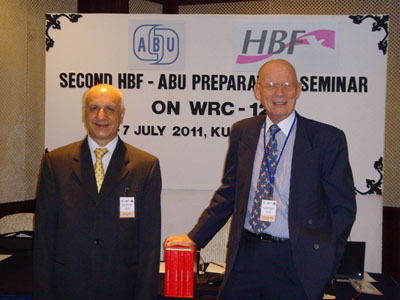One frequently-discussed issue in pay-TV regulation is government control of retail rates. CASBAA produced an up-to-date “Fact Sheet” describing rate regulation practices in Asia and Australasia. Much more info on pay-TV regulatory policies will be published in CASBAA’s “Regulating for Growth 2011” study, to be released in late September. See the Fact Sheet on Rate Regulation here.
Blog Archives
CASBAA Urges Improvement of HK Copyright Legislation
CASBAA Urges Improvement of HK Copyright Legislation
In a submission to Hong Kong’s Legislative Council, CASBAA repeated its concern that the current Copyright Amendments bill, the product of six years of discussion to update Hong Kong’s legislation for the digital era, “will not in itself do much to deter further rapid growth in online piracy of television content.” CASBAA urged the SAR authorities to add to the legislation provisions to encourage ISPs to adopt policies to assist with consumer education, and deter abuse of the internet by serial infringers. View the Legislative Council submission here.
CASBAA Joins WRC Prep Meeting
CASBAA’s WAG Consultant, Jorn Christensen, represented the Association at a July 4-6 Asia-Pacific Broadcasting Union (ABU) preparatory meeting for WRC 2012. Christensen spoke on the importance of obtaining ITU recognition that a “fixed” wireless broadband service is often equivalent to a “mobile” one, from a satellite interference perspective, as the receiving terminals (computers) can be effectively located anywhere in the service area, even if they don’t “walk around.” He used a recent Satellite Industry Committee Presentation to brief the ABU’s free-to-air broadcasters on C-band interference challenges.
(Picture shows Christensen (on right) with ABU Technical Department Director Sharad Sadhu.)
Singapore Sets Cross-Carriage Rules
Singapore’s Media Development Authority announced July 1 that it would require pay-TV retailers in the country to implement on August 1 the “cross-carriage” scheme for any pay-TV content sold on an exclusive basis. The system is going ahead despite continued objections from content providers, and warnings of implementation difficulties by the major pay-TV retailers. However, the transition will be eased by the fact that very little content will actually be “cross-carried;” few, if any, exclusive carriage agreements are being signed in Singapore. (In its submission to MDA, CASBAA had warned that with little content actually being cross carried “the risk of unmet expectations and consumer complaints remains very high.”) Meanwhile, local press reports, as usual, focused on the impact of the measures on negotiations for sports rights.
MDA’s latest Press Release and “Closing Note” on the consultation process, as well as all 10 of the submissions made in the most recent round of consultations, can all be accessed through this web page:
http://www.mda.gov.sg/Reports/ConsultationReports/Pages/CrossCarriageMeasure.aspx
CASBAA Urges Australia To Avoid C-band for Mobile Broadband; Warns of International Repercussions
In a submission to the Australian Communications and Media Authority (ACMA), CASBAA pointed out that decisions by national regulatory bodies can have serious repercussions for the commercial viability of international services. This is especially true of frequency allocations affecting international satellite services, and CASBAA expressed “deep concern” at ACMA consideration of licensing standard C-band frequencies for mobile broadband services. CASBAA’s bottom line: “We urge ACMA not to further consider using these frequencies for mobile broadband services, as to do so will contribute to jeopardizing essential C-band communication services across a wide swathe of Australia’s neighbouring countries.”
Content Coalition Urges Passage of US Bill Targeting “Rogue Sites”
CASBAA and other members of the Coalition Against Online Video Piracy wrote to leaders of the US Senate Judiciary Committee urging passage of the “Protect IP” Act of 2011”. That bill would aim to penalize international piracy websites by forcing their removal from US domain name servers, advertising servers and search engines. It has garnered a wide range of bipartisan support from legislators concerned about sites pushing everything from pirate movies to fake designer shoes. The letter can be seen here.
Combating Online Piracy of Sports Broadcasts
In a recent article, an India-based IP expert provides a succinct analysis of challenges facing broadcasters, as online piracy gets better, faster and more widespread. Says the author, “stakeholders, governments and policy makers in countries that have an established respect for intellectual property are increasingly sensitised to the unique threats posed by such professionally managed pirate operations.” Noting new enforcement and legislative pushes taking place in the USA, the author observes that “a wide range of third parties (such as CDNs, ISPs and domain registries) are involved behind the scenes at each stage of the (piracy) process, many of them based in countries with more progressive intellectual property laws,” and this may provide levers for future actions. Read the entire article here.
New Indian Content Guidelines Announced
Key stakeholders in the Indian broadcasting industry have announced new content guidelines for implementation by all TV channels in the India market. The guidelines produced by the Indian Broadcasting Foundation (IBF) aim at producing a system of self-regulation for the Indian television industry, but – by agreement with the Indian government – they are also expected to be given legal force soon. (News channels are already subject to a separate self-regulation agreement.) Among other provisions, the new guidelines specify standards for classification of programs and “watershed hours” between 11 pm and 5 am, which are the only times when “restricted” content (not suitable for children) may be shown.
The text of the content guidelines can be found here.
CASBAA Submission on Implementation of Cross Carriage in Singapore
In its response to MDA’s “Third Consultation” paper on cross-carriage, CASBAA suggested that MDA should exercise “restraint” in implementation of a cross-carriage system, and warned against a system where the regulator evaluates every wholesale pay-TV contract on non-transparent criteria. CASBAA also suggested that an alternative “Open Access” system providing the means for content providers to voluntarily seek cross-carriage of content would be far preferable to MDA’s proposed mandatory cross-carriage system, and would be equally effective in dealing with content “fragmentation” across various platforms.

